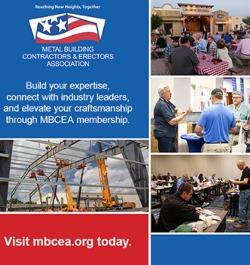UP TO THE MINUTE
How contractors can stay competitive amid mergers and acquisitions
September 11, 2025 at 12:00 p.m.MCS Influencer John Kenney says if you consistently show up with knowledge, integrity and quality, you’ll continue to grow no matter who’s merging with whom.
The roofing industry has seen a steady wave of mergers and acquisitions in recent years. From private equity firms buying regional contractors to manufacturers consolidating brands, these shifts are changing how business gets done and who’s doing it. Independent roofing contractors have concerns about staying competitive in this environment. Consolidation creates larger players in the field but also opens opportunities for the independents to focus on what they bring: service, expertise and reputation.
Understanding mergers and acquisitions is the first step in navigating this environment. Larger companies often focus on scale, market share and efficiency, and can lose the personal touch that clients value. Decision-making usually becomes more corporate, with slower turnaround times and relationships more transactional. That’s where independent contractors can shine by being nimble, responsive and deeply invested in their local markets.
Contractors wanting to stay competitive in this climate must sharpen their value proposition. What makes your business different, and more importantly, what makes it better for your client? The answer should be price. Competing solely on cost against a larger firm with deeper pockets is a losing game. Instead, focus on your value: reliability, craftsmanship, communication, safety and follow-through. If your customer doesn’t have to chase you for updates, reschedule twice or worry about post-installation issues, that becomes a competitive edge.
Branding also plays a bigger role in a consolidating market. Contractors often underestimate how much their reputation and identity matter. Now is the time to get your house in order. Ensure your digital presence, customer testimonials and community involvement are front and center. You don’t need a national ad budget to succeed. You can dominate locally by becoming the most trusted name in your region. Invest in consistent branding across your trucks, website, social platforms and project signage. Ensure your clients and prospects know who you are and what you stand for.
Customer education is another area where independent contractors can gain ground. Larger companies may push standard packages and high-volume solutions, but you can take the time to educate clients about roofing systems, maintenance programs and lifecycle costs. When you walk a building owner or homeowner through the pros and cons of each option and do it without a hard sell, you build credibility that no marketing campaign can match. People do business with those they trust, and trust is earned through transparency and knowledge-sharing.
Operationally, contractors should look at efficiencies and processes that allow them to deliver a better customer experience. That doesn’t mean copying everything a national brand does. It means knowing your costs, scheduling crews intelligently, documenting your work clearly and using tools that streamline your workflow. A well-run job site and a predictable process build client confidence and allow you to operate profitably without massive scale.
Another overlooked differentiator is employee culture. In M&A scenarios, team morale often suffers. People get nervous about job security, leadership changes and shifting priorities. Independent contractors can use that advantage by creating a work environment where crews are respected, heard and given room to grow. High-performing talent is always looking for stability and appreciation. If your team is well-trained, safety-focused and proud of their work, that pride carries into every job and your clients will notice.
Relationships still matter in roofing. While larger firms may rely on national contracts, call centers and layers of management, you can continue to build direct relationships with building owners, facility managers, general contractors and suppliers. These relationships often decide when the work is complex, time-sensitive or high-risk. Being known as the contractor who shows up, delivers what was promised and makes the process easier will keep your pipeline full, even when competition increases.
Finally, consider your long-term strategy. If your market is consolidating fast, you may have to think differently about partnerships, market segments or specialty services. Would it make sense to team up with another firm for scale? Should you expand into service and maintenance, coatings or solar integration? The key is to evolve without losing what makes your company unique. Growth and adaptability can happen on your terms; you must be intentional.
Contractors don't need to feel threatened in a market reshaped by mergers and acquisitions. They must double down on what sets them apart: responsiveness, relationships and real-world results. Clients don’t hire the biggest contractor; they hire the right one. And if you consistently show up with knowledge, integrity and quality, you’ll continue to grow no matter who’s merging with whom. Stay focused, stay flexible and remember that trust is still your most valuable asset in a changing industry.
John Kenney is the CEO of Cotney Consulting Group. See his full bio here.






















Comments
Leave a Reply
Have an account? Login to leave a comment!
Sign In